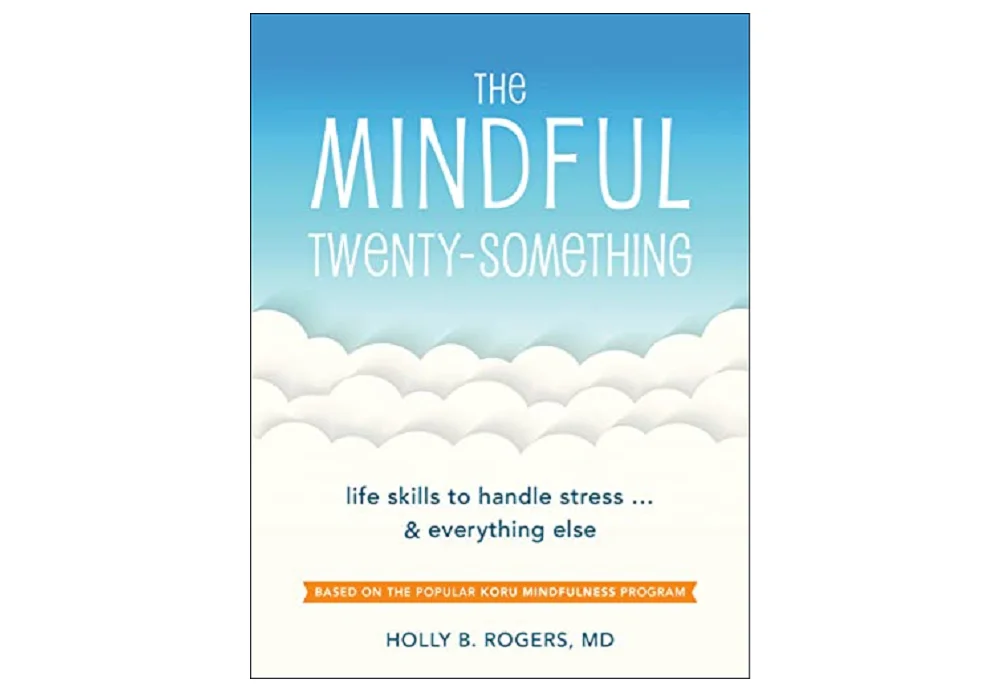If mindfulness sounds… well… nebulous, you’re not alone in thinking that. The concept – basically, paying attention to the present moment in a non-judgmental way – can have a hazy, cloudy feel.
But the benefits of mindfulness are clear. Research has consistently shown a positive relationship between mindfulness and psychological health. Things like less stress, more joy, greater focus and improved sleep. In addition, evidence supports our ability to develop this trait.
But even if we have a sense of what it means and we know it’s good for us, figuring out how to cultivate it in ourselves and reap the benefits is another story.
Enter a little book I came across recently, The Mindful Twenty-Something: Life Skills to Handle Stress…& Everything Else, by Holly B. Rogers, MD. (Don’t stop reading if you’re over 29; the content is universal.) A college student told me this book was assigned reading in one of their freshman courses at Michigan State University. Intrigued, since I encourage clients to incorporate mindful practices and want to know the best resources, I gave it a read.
Rogers, a psychiatrist at Duke University who developed a mindfulness program for young adults now taught internationally, states the book’s goal this way:
“This book is designed to nudge you into trying mindfulness. In my experience, bridging the gap between understanding that mindfulness is a helpful skill and actually practicing it in a meaningful way is the trickiest part. The Mindful Twenty-Something is about helping you across that gap, taking you from a solid understanding of mindfulness and its benefits to a regular practice that produces positive change for you.”
Her easy-going plan encourages 10 minutes a day of meditative practice, jotting down things you’re grateful for, and being mindful during routine activities. She guides the reader through key mindfulness skills, such as “Breath Awareness” and “Labeling Feelings Meditation.” By the last chapter, you will have developed 10 skills and incorporated more mindfulness into your life. Bonus, at under 200 pages with a larger font amidst ample white space, it’s a peaceful read.
My clients are giving positive feedback on this guide, but there are a plethora of great mindfulness tools to bridge the gap from concept to practice – other books, apps, podcasts, classes. I encourage you to find one that appeals to you and see if mindfulness may benefit you personally.



